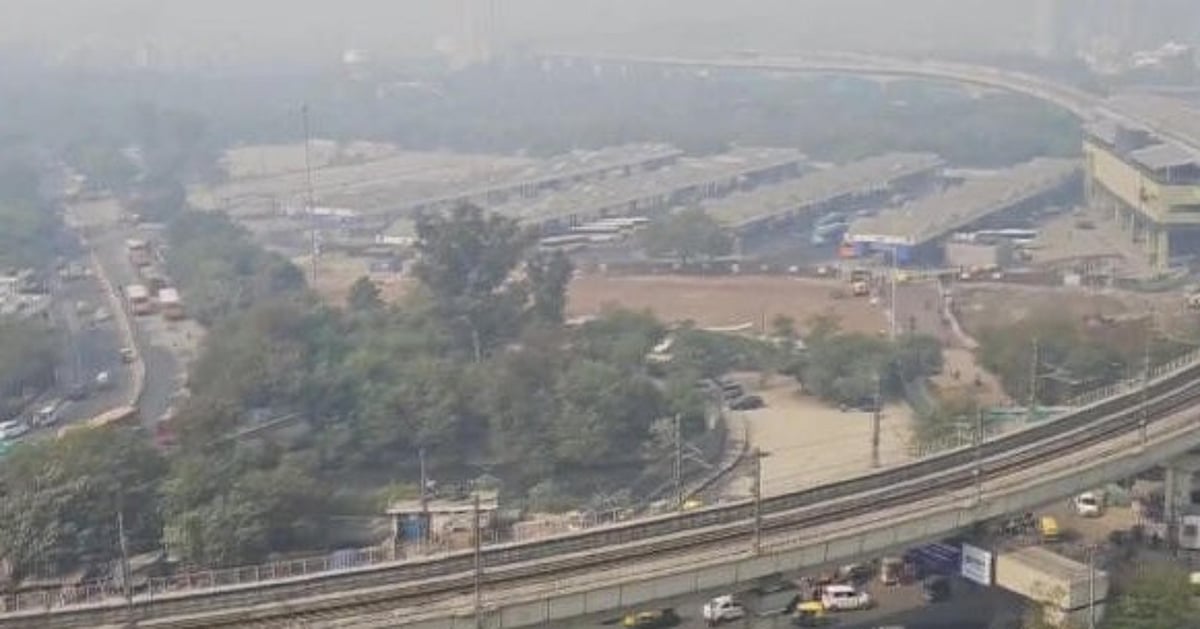 |
|
The air quality in Delhi, India, continues to be a significant concern, with recent readings fluctuating between 'Very Poor' and 'Severe' categories. The Central Pollution Control Board (CPCB), the primary agency responsible for monitoring air quality in India, reported a 24-hour average Air Quality Index (AQI) of 318 as of 4 pm on Sunday. While this represents an improvement from the previous day's AQI of 412, which fell into the 'Severe' category, the reading of 318 still places the city's air quality firmly in the 'Very Poor' range. This persistent poor air quality underscores the ongoing challenges faced by Delhi in managing its environmental pollution levels and highlights the urgent need for comprehensive and sustained mitigation efforts.
The fluctuating nature of the AQI readings reflects the complex interplay of various factors contributing to Delhi's air pollution. These include vehicular emissions, industrial activities, construction dust, and seasonal factors such as agricultural burning in neighboring states. The relative improvement seen on Sunday may be attributed to changes in weather patterns, such as increased wind speeds which can help disperse pollutants, or a temporary decrease in specific polluting activities. However, the fact that the AQI remains in the 'Very Poor' category indicates that these improvements are likely short-lived and don't address the underlying systemic issues causing Delhi's persistent air pollution problem.
The health implications of prolonged exposure to 'Very Poor' air quality are severe. The pollutants present in the air, such as particulate matter (PM2.5 and PM10), ozone, and sulfur dioxide, can cause respiratory illnesses, cardiovascular diseases, and other health problems, particularly affecting vulnerable populations such as children, the elderly, and individuals with pre-existing health conditions. The consistent poor air quality in Delhi places a significant burden on the healthcare system and necessitates proactive interventions to reduce the health risks associated with air pollution. This includes public health campaigns to raise awareness about the dangers of air pollution and the importance of protective measures, such as wearing masks and reducing outdoor activity during periods of high pollution.
Addressing Delhi's persistent air pollution crisis requires a multi-pronged approach involving both short-term and long-term strategies. In the short-term, measures such as stricter enforcement of emission standards for vehicles and industries, the implementation of effective dust control measures at construction sites, and the regulation of agricultural burning in surrounding areas are crucial. The government's efforts in this area have been inconsistent, with periods of stringent enforcement followed by periods of lax implementation. A consistent, long-term commitment to enforcing these regulations is vital for achieving sustainable improvement in air quality.
Long-term solutions require a more comprehensive and integrated approach. This includes promoting the use of public transportation, cycling, and walking to reduce reliance on private vehicles; investing in renewable energy sources to reduce reliance on fossil fuels; implementing stricter building codes to minimize construction-related dust; and fostering greater collaboration between Delhi and neighboring states to address the transboundary nature of air pollution. Furthermore, continuous monitoring and data analysis are essential to understand the sources of pollution and the effectiveness of various mitigation strategies. This data-driven approach allows for the refinement of policies and interventions, maximizing their impact on improving air quality.
The ongoing struggle to improve Delhi's air quality highlights the complexity of environmental challenges in rapidly developing urban centers. It underscores the need for sustained political will, collaboration across various stakeholders, and innovative solutions to address the intertwined issues of economic growth, public health, and environmental sustainability. The significant impact of air pollution on the health and well-being of Delhi's residents makes the fight for cleaner air a matter of urgent public health concern and an ongoing challenge that requires commitment and comprehensive action at all levels of government and society.
Source: Delhi air quality fluctuates between 'Very Poor' and 'Severe'; AQI at 318
